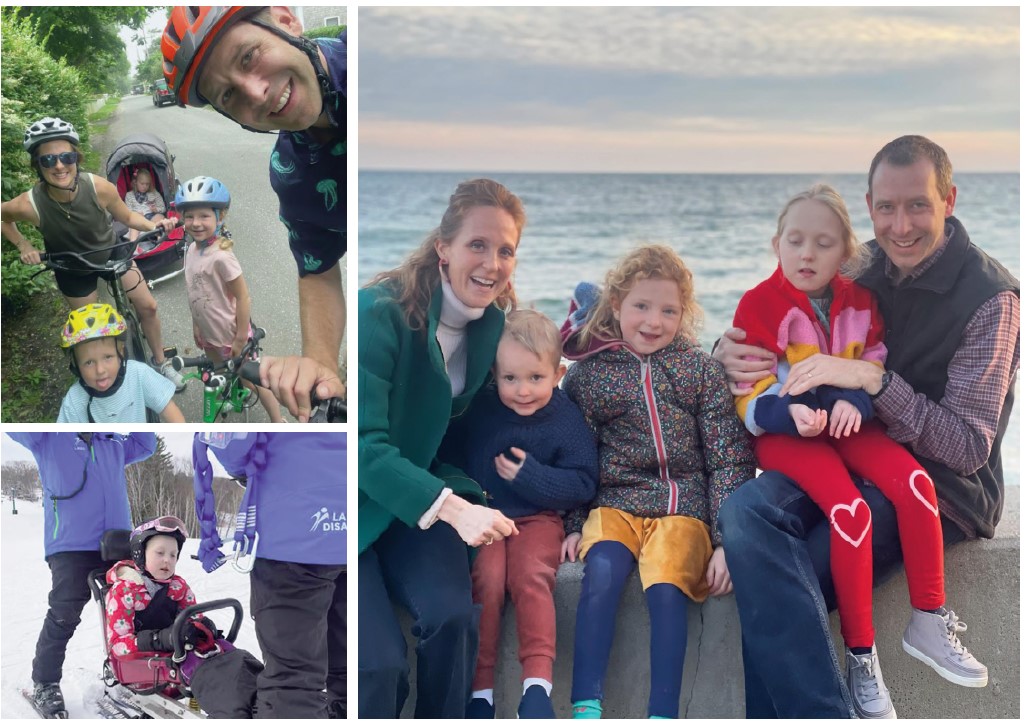
ACTIVE ADVOCACY: The Ondrasiks are always on the move and include Gabrielle in all of their adventures. "My experience with Gabrielle's diagnosis has changed how I think and act as a pediatrician — for the better. I now advocate for genetic testing for my patients who show developmental delays."
I'm here to tell you otherwise. Progress in the field of genetics over the past ten years indicates that CACNA1A and other "rare" diseases may actually not be so rare, but rather underdiagnosed. Recent research shows that genetic factors are responsible for up to 40 percent of developmental disability cases, such as global developmental delay and intellectually disability. Research also indicates that the majority of unexplained epilepsies have a genetic cause.
Genetic testing was my family's path to hope. It led us to the CACNA1A Foundation, a collaborative network of CACNA1A families, clinicians, and scientists working to accelerate the understanding, diagnosis, and treatment of CACNA1A-linked diseases. It allowed us to identify the right intensive therapies and to pursue off-label treatments that have helped control Gabrielle's seizures, keeping her mostly out of the hospital for the last 2.5 years, when we used to go monthly. Perhaps most importantly, we have been able to participate in research that may ultimately lead to the development of treatments specifically for CACNA1A-related disorders and Gabrielle.
My experience with Gabrielle's diagnosis has changed how I think and act as a pediatrician – for the better. I now advocate for genetic testing for my patients who show developmental delays. As
a parent and a pediatrician, I urge you to talk with your child's doctor about genetic testing if your child has unexplained neurodevelopmental symptoms. There may be a genetic reason for your child's symptoms. Armed with a genetic diagnosis, you may connect with advocacy groups that can provide resources, to a community of others with the same or similar diagnoses who can help support you, to new treatments and specialized care, and to research opportunities that can help advance treatment for all those with genetic disorders. As more genetic variants are identified, the pharmaceutical industry has more data and incentives to pursue the development of new treatments for our children.
Genetic testing may just be your path to hope too. •
ABOUT THE AUTHOR:

Dr. Deborah Ondrasik is a board-certified pediatrician in Massachusetts and the mother to three children, including Gabrielle (9), who was diagnosed with a CACNA1A mutation at 2-years of age. She is an active volunteer with the CACNA1A Foundation (cacna1a.org) whose mission is to find effective treatments and a cure for CACNA1A disorders by building a collaborative network of CACNA1A families, clinicians and scientists to collectively raise awareness and accelerate the understanding, diagnosis and treatment of CACNA1A-related disorders.